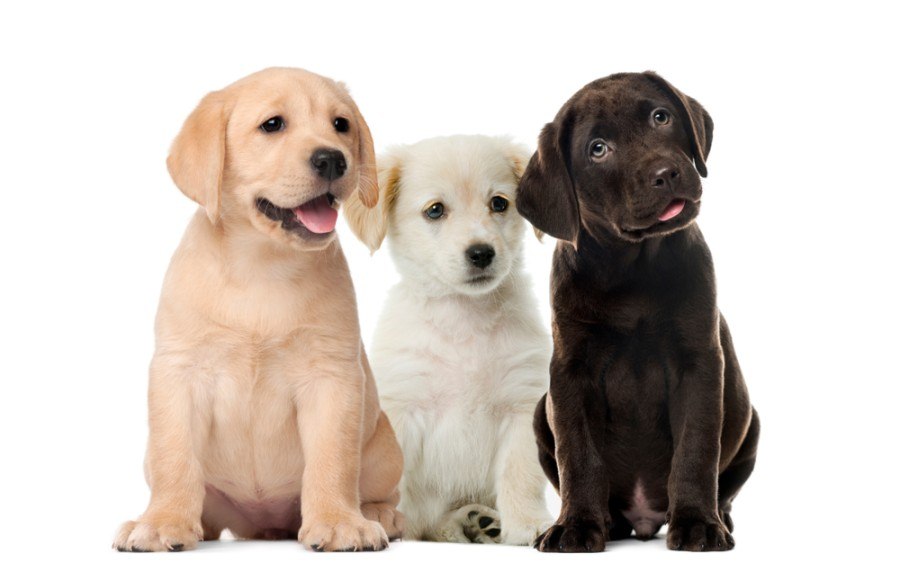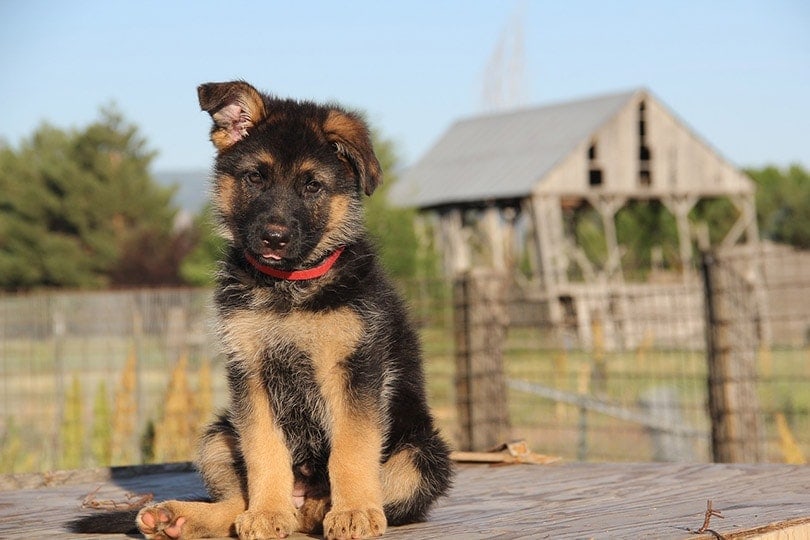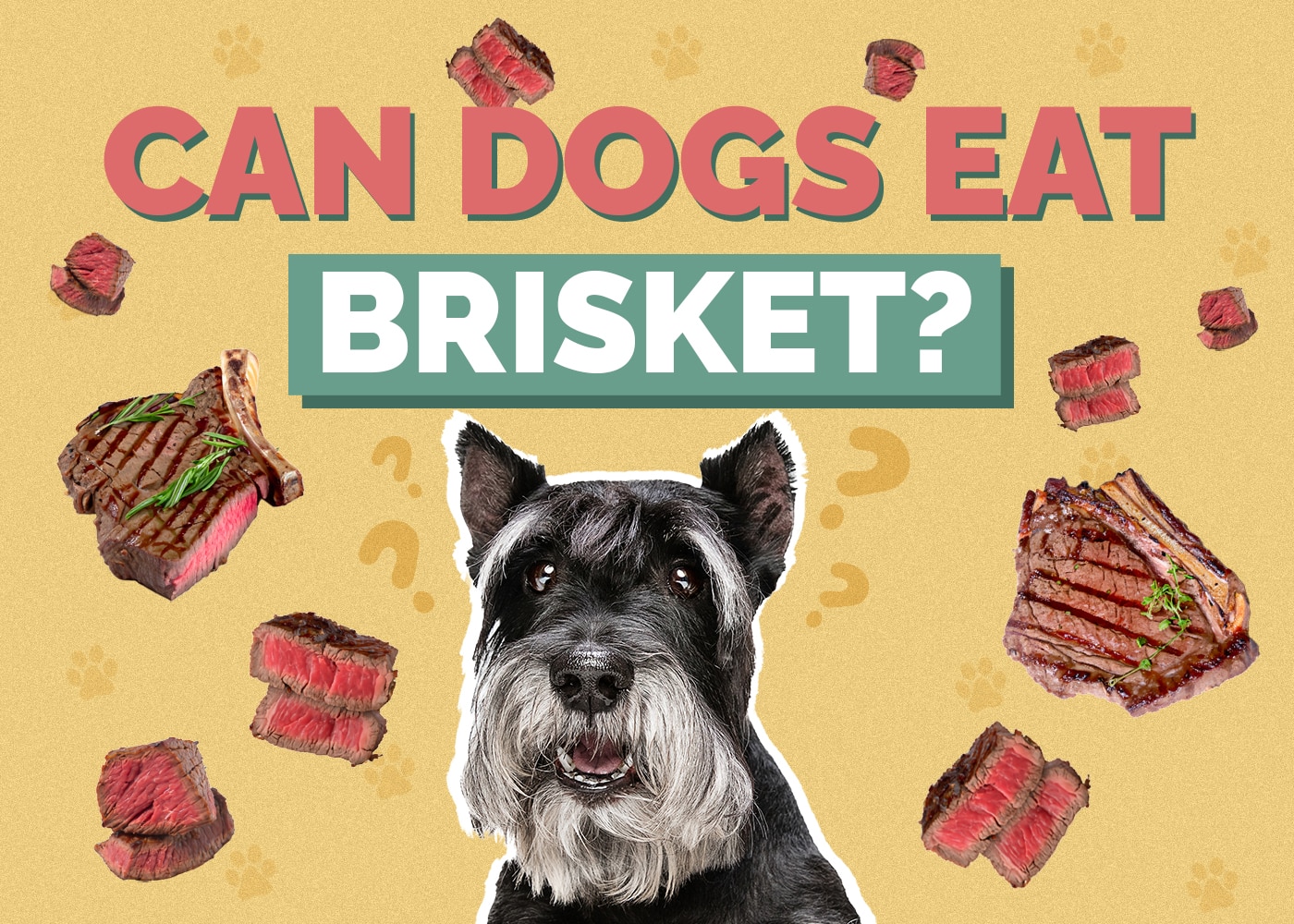Why Is My Dog Not Eating? 5 Vet-Reviewed Reasons & What To Do

Updated on
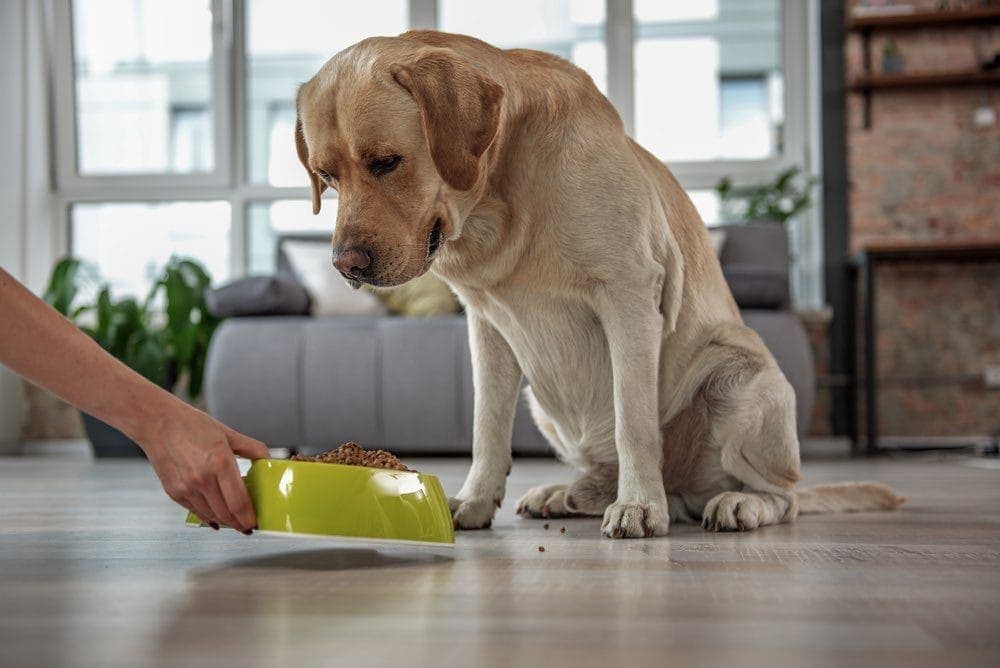
Not all dogs are greedy, and in fact, some are downright fussy! But even those that are very selective about what they eat, will have a feeding pattern they generally adhere to. So when our canine companion stops eating, it’s normal for us to be worried.
There are plenty of not-so-concerning reasons for a dog to go off their food, but there are also some that are very concerning. In the following article, we will explore the most common reasons a dog will stop eating, when we need to be concerned, and even take a look at why some dogs are fussier than others (and how we might be able to prevent it).
Let’s start with some non-medical reasons before sinking our teeth into the more concerning reasons for a dog to stop eating.
The 5 Reasons Your Dog is Not Eating
1. They’re Not Hungry
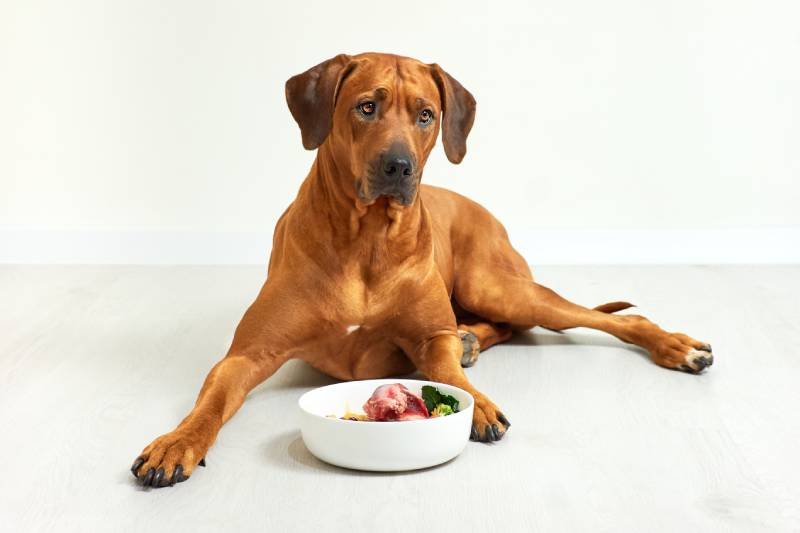
aka – how we teach dogs to be greedy
Dogs, like humans, have specific physical and chemical receptors that tell the brain when the stomach is full or empty, and whether to feel hungry or not. This means that how hungry your dog is will depend on how much energy it has expended. If they have had a low energy output day, they simply may not need to eat or need to eat less.
As owners, we often panic if our dog skips a meal or doesn’t empty their bowl. As we will discover later, there are certainly times when we need to be concerned, but if your dog is bright and happy and showing no signs of weakness, illness or lethargy, their lack of appetite is likely to be their body telling them that they don’t need to eat.
By panicking and offering more tempting foods to get our dogs to eat when they don’t need to, we are essentially teaching them to eat when they aren’t hungry, and we are also teaching them that if they don’t eat their food, they might be offered something more tasty. Which brings us to our next point:
2. They Don’t Like Their Food
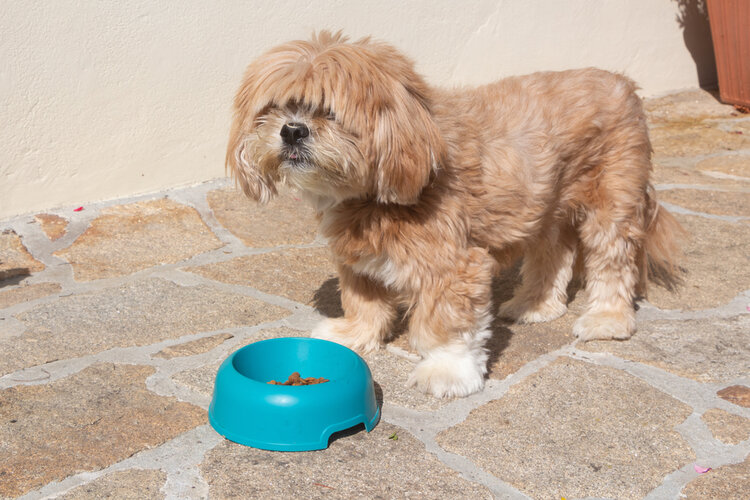
aka – how we teach our dogs to be fussy
There is a common pattern seen in veterinary practice, where dogs who are supposedly fussy and “don’t like dog food” are often quite overweight. Some dogs truly are very fastidious feeders, and will virtually starve themselves until they are offered the right food, but more commonly, we create fussy dogs.
Dog food companies would like us to believe that dogs crave variety; they want to experience exotic flavors and textures and cannot be expected to eat the same food every day. There is no denying that dogs do enjoy eating something different from time to time, but what is important to dogs is not the flavor, but the smell.
Compared with humans, the olfactory system (sense of smell) of dogs is 40 times more sensitive than ours, whilst humans have more than five times the number of taste buds of dogs. When you watch a dog eat their food, it usually spends very little time in the mouth; once their nose has told them it’s edible, the rest is all about getting it into their stomach.
When a “fussy” dog sniffs their food and walks away with disgust, they are objecting to the smell, not the taste. A lot of dry kibble doesn’t have a strong smell, so may not generate much of a response. Brachycephalic (flat-faced) dogs are often amongst the fussy eater club, and this is likely due to their squished noses having a reduced sense of smell.
Much like the scenario above, when we replace our fussy dog’s food with something more appealing, they learn very quickly that refusing the first meal will get them something better. This is why people often mourn the fact that the food their dog loved last week is now being rejected. Dogs are clever, and they can be very good at manipulating us.
So, how do we avoid creating these greedy, fussy monsters? And how do we know when to be worried that our dog is refusing to eat?
Let’s call it “The 20/12/48 Rule.”
DO NOT follow this rule if your dog is refusing to eat AND is showing any other changes such as lethargy, weakness, vomiting or diarrhea. Make an appointment with your vet. This also applies to dogs with pre-existing health conditions, those on medication, or dogs under 6 months.
If your dog is otherwise bright, happy, and healthy, but turning their nose up at their food, try the following approach:
Leave the food down for 20 minutes. Take up anything they haven’t eaten, and store it in an airtight container. Offer no other food, NONE, for 12 hours. After 12 hours, put the same food down again. After 20 minutes, discard any uneaten food. Repeat for a maximum of 48 hours.
Dogs who just weren’t hungry will usually eat normally at their next meal. Dogs who are hoping for something more appealing will usually give in within 48 hours. If they still aren’t eating by hour 48 (the 5th offer of food), prepare the same food, but cover it with some hot water and leave it to soak for one hour. Test the food to make sure it is slightly warm but not hot, and offer it to your dog. Warming the food can increase how much it smells, which can often make it more appealing.
If your dog has not eaten anything for 48 hours, contact your vet to arrange an examination in case there is a medical reason they are refusing food. Make sure your dog is still drinking during this period; dogs can go without food for 3-5 days with no ill effects, but should not go without drinking for more than 48 hours.
3. Change in Environment
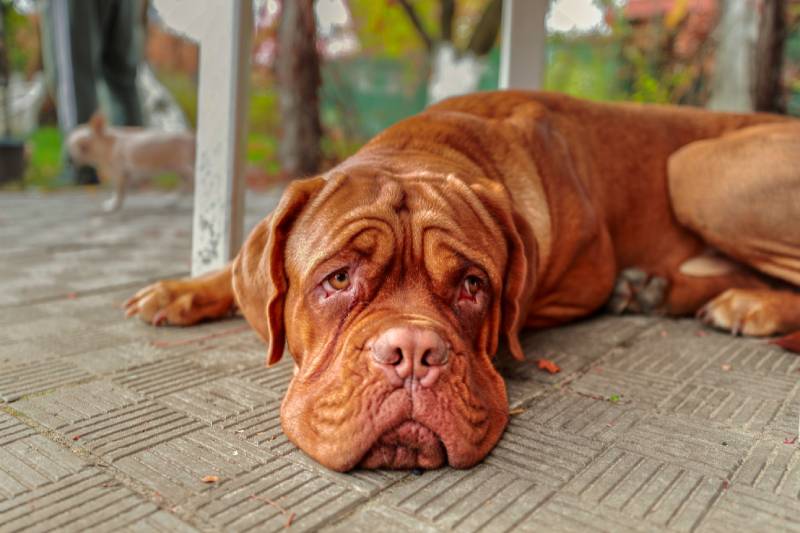
Dogs can be very sensitive to changes in their world, even things we wouldn’t think they might pick up on. Friction or fighting in the house, disruption to normal schedules, even building work or changes happening in the neighborhood can create stress and anxiety in your family pet, which can cause them to go off their food.
If this is the cause of your pooche’s refusal to eat, you may notice other behavioral changes, such as being more distant, or more clingy, hiding away more, resting/sleeping in unusual locations, trembling or panting for no apparent reason.
If you think external stressors might be the cause of your dog’s diminished appetite, talk to your vet about some options for helping them feel more settled.
4. Dental Problems
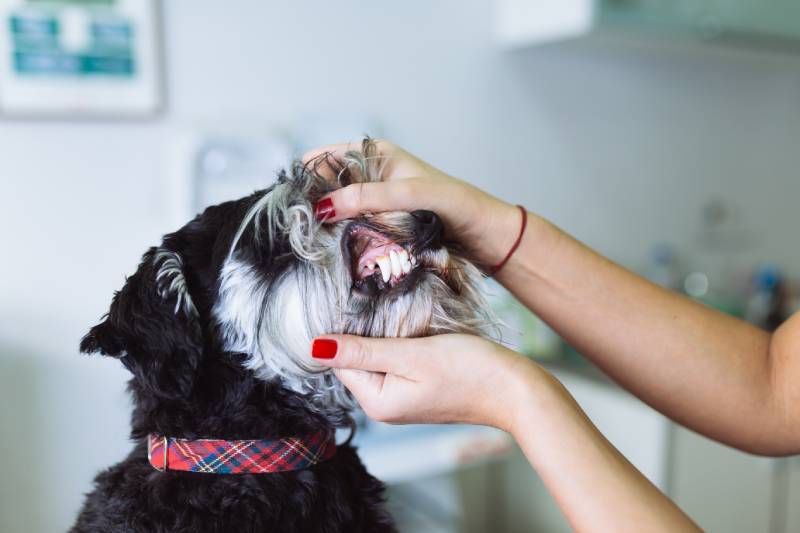
Dogs of any age can suffer from problems with their teeth. Teething in a puppy, a fractured tooth in an avid stone chewer, or an infected tooth; any of these can cause a dog to start eating less, or stop eating altogether. It’s remarkable how many dogs with severe dental disease will continue eating despite the terrible state of their teeth, but one exposed nerve can change that in an instant.
Signs that your dog’s loss of appetite is due to a problem in their mouth can include:
- Bad breath
- Visible calculus (tartar) on your dog’s teeth
- Rubbing their mouth against surfaces
- Pawing at the mouth
- Dropping food
- Difficulty picking up their food
- Only chewing with one side of the mouth
- Blood from the mouth
- Swelling under the eye (which can be due to a tooth root abscess)
Any of these signs, even without a loss of appetite, warrant a visit to the vet. Dogs with dental disease need treatment, and addressing the problem before they stop eating is certainly preferable to waiting for it to affect their appetite.
5. Illness
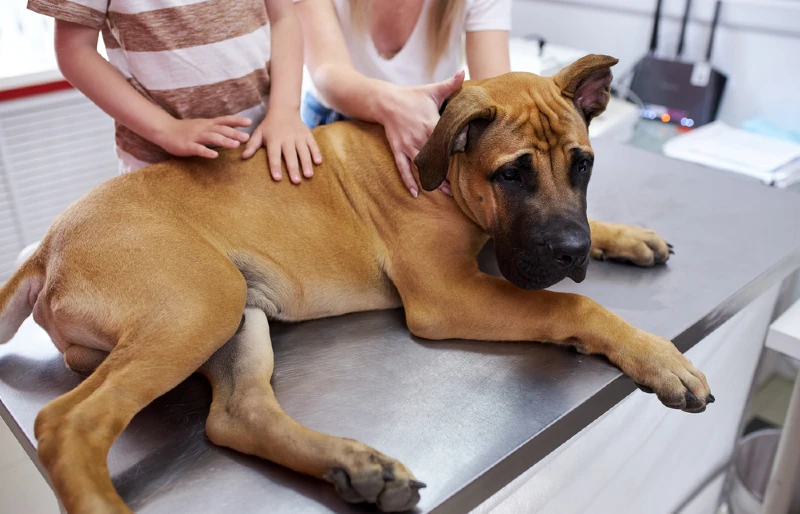
There are hundreds of health issues that can cause a dog to stop eating, far too many to cover in detail here. Instead, we’ll go over the main areas of concern, the signs we need to be looking out for, what they might mean, and how quickly you should be seeking veterinary help.
Gastrointestinal problems
This may include infection, obstruction, inflammation, or dietary indiscretions (aka “I shouldn’t have eaten that”). Pancreatitis and foreign body ingestion are commonly encountered gastrointestinal disorders in dogs, and both need urgent veterinary care. Signs to look out for are:
- vomiting
- diarrhea
- painful abdomen
- arched back or “praying position”
Liver disease
The liver is responsible for metabolizing food and removing toxins from the blood. Many things can affect liver function, such as
- shunts (where blood is being diverted away from the liver)
- neoplasia – cancer of the liver, or a tumor obstructing the flow of blood or bile in the liver
- infection or inflammation – viral or bacterial hepatitis, fatty liver disease
Signs of liver disease can be similar to those of gastrointestinal disease, but in addition to those listed above, we may also see
- Icterus/Jaundice – yellow appearance to the gums and whites of the eyes
- Coagulopathies – clotting problems, causing spontaneous bleeding, excessive bruising, or petechiae (small patchy areas of blood on the surface of the skin or gums from bleeding capillaries)
- Low blood sugar – glucose is stored in the liver, so problems with liver function can lead to hypoglycemia, which can cause weakness, collapse, seizures, and even coma
Kidney Disease
Also responsible for filtering waste products from the blood, and maintaining the right amount of fluid in the body, when the kidneys aren’t working properly, the buildup of toxins in the bloodstream will often lead to nausea and inappetence. Other signs of kidney disease include:
- increased urination and drinking
- weight loss
- lethargy (from anemia)
Infection
Dogs with a bacterial or viral infection will often have a fever, which can result in a reduced appetite. The signs will depend on the type and location of the infection, but will usually include:
- high temperature (may be noticeable as a very hot nose or ears, or panting)
- lethargy
- pain
These are just a few examples of how illness can affect your dog and cause it to stop eating. Your vet will take a detailed history and perform a thorough physical examination to determine the cause of your dog’s inappetence. They will most likely want to run tests such as bloodwork, ultrasound or x-rays.
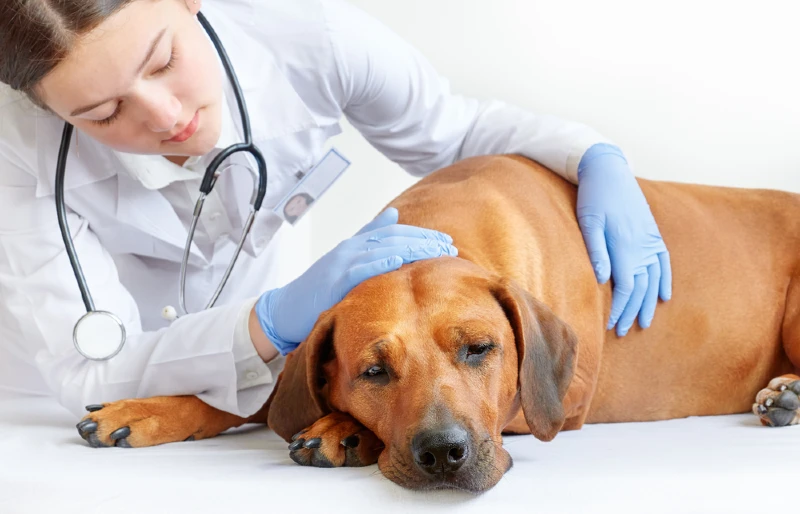
 Summing Up
Summing Up
There are many different reasons for a dog to stop eating, many of which are of no cause for concern. If your dog hasn’t eaten for more than 24 hours and is showing ANY signs of illness, you need to make an appointment to see the vet. Almost any illness that causes your dog to feel unwell can make them stop eating, so a physical exam and tests are the best way to work out what the problem is.
If your dog isn’t eating but is otherwise seeming bright, well, and happy, try using the 20/12/48 rule to see if they’re just not hungry, or if they’re trying their luck to get something more tasty!
See also:
Featured Image Credit to Olena Yakobchuk, Shutterstock


